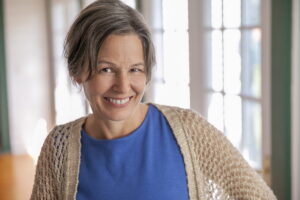
Recently, I came across Henry David Thoreau’s well-known quote, “The cost of a thing is the amount of what I will call life which is required to be exchanged for it, immediately or in the long run.” His sentiment inspired a Google search where I found Just Enough is Plenty by Samuel Alexander, a book that examines Thoreau’s alternative economics.
“Just enough is plenty” has been circling my mind ever since, reminiscent of how I felt during quarantine on April 3, 2020 when I wrote:
I relearn what is essential,
balance worth on payday
by my smile lines.
In his book, Alexander examines the events leading up to Thoreau’s journey to Walden Pond, “the young Thoreau was confronted by those great economic questions all of us must face when trying to establish financial independence in a world of scarce resources: How best to earn a living? How much time should I spend at it? How much do I need to live well and to be free?“
Thoreau wanted the poetic life. But how?
How to live?
Thinking about Thoreau’s “vocation of crisis,” I reflected on a few of my own decisions when faced with how to live in the society I was born in to. Like Thoreau, I wanted to be a poet but didn’t know how to live like one.
My first economic decision was whether to pay my bills on time. After high school, I lived with roommates and worked part-time in a trophy shop. I knew I’d pay bills until I was dead. The only people who didn’t pay bills, I reasoned, lived in communes. I ruled out moving to a commune and decided paying bills on time simplified adulthood.
In my early twenties, I looked for a more holistic approach to life as a poet, and “how to live” led me to Bronnie Ware’s top 5 regrets of the dying:
- I wish I’d had the courage to live a life true to myself, not the life others expected of me.
- I wish I hadn’t worked so hard.
- I wish I’d had the courage to express my feelings.
- I wish I had stayed in touch with my friends.
- I wish that I had let myself be happier.
If this isn’t a blueprint for a poetic life, I don’t know what is.
I wish I’d had the courage to live a life true to myself, not the life others expected of me.
Artists must live a life true to themselves and definitely not what others expect of them. The Art demands it. As historian Sigfried Giedion put it:
The artist, in fact, functions a great deal like an inventor or a scientific discoverer: all three seek new relations between man and his world. In the artist’s case these relations are emotional instead of practical or cognitive. The creative artist does not want to copy his surroundings, on the one hand, or to make us see through his eyes, on the other. He is a specialist who shows us in his work as if in the mirror something we have not realized for ourselves: the state of our own souls. He finds the outer symbols for the feelings which really possess us but for us are only chaotic and—therefore—disquieting, obsessive stirrings. This is why we still need artists, however difficult it may be for them to hold their place in the modern world
I wish I hadn’t worked so hard.
Okay, poets work hard. But, if we’re to take the advice of Rainer Marie Rilke, (and we do take his advice), we get another perspective on work: “We have to mix our work with ourselves at such a deep level that workdays turn into holidays all by themselves, into our actual holidays.”
I wish I’d had the courage to express my feelings.
Done.
I wish I had stayed in touch with my friends. I wish that I had let myself be happier.
The last two regrets speak to the importance of community and being kind to oneself. I wouldn’t say they are natural to a poet’s life; more like a poet’s two biggest obstacles. Poets like to be alone. We’re tough on ourselves. And we’re prone to melancholy.
What if you’re not a poet?
You don’t have to be a poet to live a poetic life. You might be looking to slow down and find the extraordinary in the ordinary. Maybe you’re having a “crisis of vocation” like Thoreau or questioning how to live (especially as we face a cultural shift in the wake of a pandemic).
As a poet, I’m driven by the need to understand how to live. It doesn’t pay all the bills, but my life is enriched in ways that money cannot buy. Thoreau knew this to be true. Yet, it wasn’t a new idea. “Just enough is plenty” is another way of saying what philosopher Lao Tzu taught in 6th century BC, “Those who know they have enough are rich.”
Quote and photo by author. All rights reserved.



